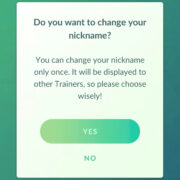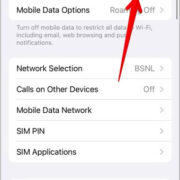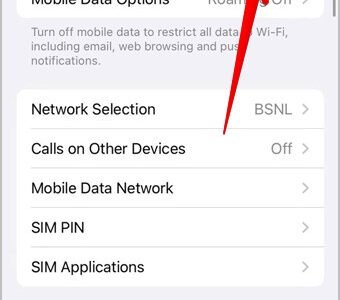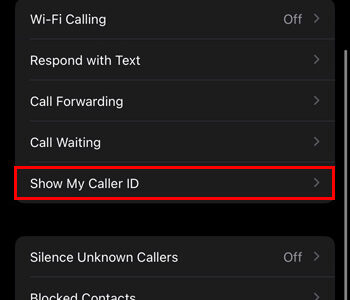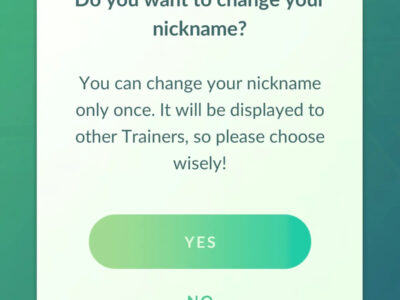Many of us have found ourselves in situations where we need to reconnect with old classmates, track down relatives, or perhaps conduct some form of background check that requires finding someone using their date of birth. It might seem daunting, especially without a hefty amount of technical know-how, but the truth is that there are various methods and tools available to help in this pursuit. This guide aims to demystify the process by walking you through a range of strategies, whether through internet databases, social media platforms, public records, or other resources, ensuring you can search effectively, regardless of your technical background.
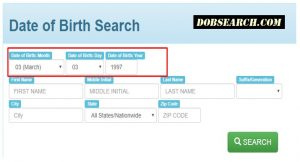
Public Records Databases
Public records databases are official repositories of information held by government agencies. This includes birth records, which can be accessed by the public. However, availability and access methods can vary depending on laws and regulations of specific countries or regions.
- Identify the relevant government agency that handles public records in your jurisdiction, such as a Department of Vital Records or a local county clerk’s office.
- Visit the official website of the agency or contact them via phone to inquire about accessing birth records.
- Follow the agency’s protocol for requesting information. This might involve filling out forms or submitting a formal request online or by mail.
- You may need to provide a valid reason to access someone’s birth record, as well as identification to prove your own identity.
- Pay any required fees for accessing or copying the records.
Summary: Searching through public records can be a reliable avenue for finding someone by their date of birth. However, it may require patience, as the process can be time-consuming and may involve bureaucratic hurdles. Fees may apply, and privacy laws may restrict access to certain information.
Social Media Platforms
Social media platforms have become digital hubs where profiles often contain personal details like dates of birth. While not everyone shares this information publicly, it’s a good place to start.
- Create accounts on popular social media sites such as Facebook, LinkedIn, and Twitter, if you haven’t already.
- Utilize the search function on these platforms to look for the person using their full name or known aliases.
- If the direct approach fails, attempt to find the individual through mutual contacts or by scanning through groups or forums they might be associated with.
- Examine any public profile information for a date of birth or other relevant information that might help in your search.
- Respect privacy settings and understand that not all information may be publicly accessible.
Summary: Social media can be a helpful tool for finding people, and in some cases, their dates of birth. This method is cost-free and can be quick. However, it relies on the individual having a social media presence and sharing personal information openly, which isn’t always the case.
Professional People Finder Services
Professional people finder services specialize in gathering and organizing public records for easy searching. These services often have more extensive search capabilities than what you might find on your own.
- Research reputable people finder services. Read reviews to ensure their legitimacy and understand their fee structures.
- Create an account and purchase a subscription if required.
- Enter the person’s full name and approximate age or date of birth into the search fields provided.
- Review the search results for matches, which can include past addresses, known relatives, and other public records.
- Use any confirmed information to continue your search or to contact the individual directly.
Summary: Professional people finder services can simplify the search process, particularly for those who are hard to locate. While these services can be effective and convenient, they often come at a cost, and the information provided may not always be up-to-date.
Alumni and Professional Associations
Many universities and professional organizations maintain directories of their members or alumni, which can sometimes be searched by date of birth.
- Determine if the person you’re looking for attended a university or is a member of a professional association.
- Access the alumni or member directory by visiting the institution’s or organization’s official website. This may require creating an account or proving your own affiliation.
- Use the search functions provided to search by the individual’s name and filter by their date of birth if this option is available.
- If you encounter difficulties, contact the administration office for assistance. They may be able to guide you through the search process or offer additional help.
- Ensure that you have a legitimate reason to request this information, as privacy policies may restrict access to personal details.
Summary: Educational and professional directories are excellent resources, especially when you have specific details about the individual’s academic or professional background. However, access might be restricted, and the information may only be available to fellow members, alumni, or authorized personnel.
Genealogy Websites
Genealogy websites compile historical records that can include birth dates, and often connect individuals through family trees.
- Select a genealogy website to use, such as Ancestry.com or FamilySearch.org. Create an account if necessary.
- Enter as much information as you know about the person, including their full name and date of birth.
- Explore any family trees or records linked to the person. These may provide additional clues or lead you to relatives who can assist in your search.
- Engage with the website’s community or forums to seek help from others who may be researching similar family lines.
Summary: These websites can be a treasure trove of information for those with genealogical interests. They offer both free and paid services, and while they may help you locate historical records related to someone’s birth, they’re generally more useful for historical research rather than finding current contact information.
Electoral Rolls
The electoral roll lists individuals who are registered to vote, and this information can often be accessed by the public for various purposes, including locating individuals.
- Find out how to access the electoral roll in your country. In some places, this might be through a local office or an online database.
- Make a formal request if required, and be prepared to provide a valid reason for accessing the information.
- Search the electoral roll using the full name and any known locations associated with the person you are looking for.
- Use any returned information, such as addresses, to further your search or to reach out to the person directly.
Summary: Electoral rolls can provide current address information, which can be useful when trying to contact someone. However, access may be limited due to privacy regulations, and usage of this information is often strictly controlled by legal requirements.
Obituary Searches
If you suspect that the person you’re trying to locate may have passed away, obituaries can provide not only confirmation but sometimes birth dates and names of relatives.
- Search online obituary databases or local newspaper archives using the person’s full name and place of last residence.
- Check funeral home websites, as they often post obituaries of the services they’ve managed.
- Utilize library archives or request assistance from librarians who can help navigate local historical records.
- If located, use the information from the obituary to contact surviving relatives who may provide more details.
Summary: Obituaries are delicate sources of information, and using them requires sensitivity. They can offer conclusive details about an individual’s date of birth and familial connections but are of course only applicable in certain circumstances.
Search Engines
General search engines such as Google, Bing, or Yahoo can occasionally yield direct results or lead to unexpected resources in your quest to find someone by date of birth.
- Conduct searches using the person’s full name in combination with their date of birth.
- Try different variations of your search terms, including possible locations, middle names, or nicknames.
- Scan through the first few pages of results to uncover any leads or related information.
- Look for links to potential employers, personal blogs, or publications that might offer additional contact information.
Summary: Search engines are a broad tool and can return a significant amount of irrelevant information, necessitating a fair amount of sifting. However, when used effectively, they can provide you with leads that more specialized resources might overlook.
Background Check Services
Background check services compile data from various public records to provide comprehensive information about an individual, including their date of birth.
- Select a reputable background check service. Be aware of legal restrictions regarding the use of these services in your area.
- Submit the required information about the person in question, ensuring to provide as accurate data as possible.
- Review the report provided by the service, which can include past addresses, employment history, and criminal records.
- Use any information obtained to further your search or get in touch with the person.
Summary: These services can be very thorough and effective but are commonly used in an official capacity or with explicit consent from the individual being searched. They typically charge a fee, and users must adhere to legal guidelines regarding usage of the information obtained.
Local Libraries and Archives
Local libraries and historical societies may hold archives of community records that aren’t easily accessible through other means, such as historical electoral rolls, directories, and local newspapers.
- Visit your local library or the archives of the area where the person last resided.
- Ask a librarian or archivist for assistance in accessing birth records or other pertinent information.
- Search through microfilm, local directories, school records, or other documents that might contain the required details.
- Record any information found to aid in verifying the individual’s identity or to further your search.
Summary: Libraries and archives are invaluable resources for local and historical information. However, the search process can be time-consuming and relies on the availability and preservation of relevant records. Assistance from knowledgeable staff can significantly benefit your search.
In conclusion, searching for someone by their date of birth can be a multifaceted process, with each method having its own strengths and limitations. From tapping into public records and utilizing the breadth of social media to engaging with professional people finder services or diving into genealogy databases, you have a toolkit of strategies at your disposal. Remember to exercise patience and employ a mix of these methods for the best results, always respecting privacy laws and ethical considerations. With due diligence and persistence, you stand a good chance of locating the individual you’re seeking.
FAQ:
Q: Is it legal to search for someone by their date of birth?
A: Yes, it is generally legal to search for someone using public information such as their date of birth. However, there are privacy laws and regulations you must adhere to, depending on your country and the context of your search.
Q: What should I do if I can’t find any information online?
A: Consider using offline methods like searching local libraries, archives, or asking mutual acquaintances. Sometimes, information is not digitized or readily available online.
Q: How can I be sure that the information I find is accurate?
A: Cross-reference any information you find with multiple sources and, if possible, confirm details directly with the person or through mutual contacts. Professional services can also help verify accuracy.

